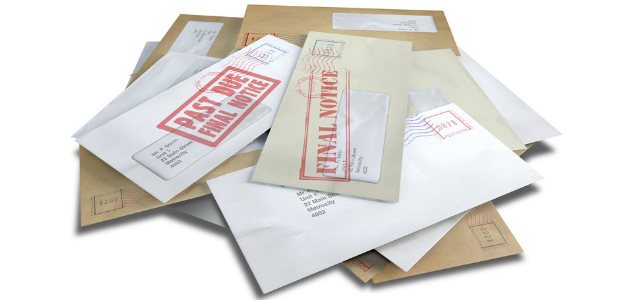There must be no worse feeling in the world than receiving a “WARNING” that indicates you better pay up, or else. That ugly, threatening letter from one (or perhaps more than one) of your creditors. When is too late, really too late for you? Being in arrears with your credit payments is not a favourable position you can find yourself in. And, receiving a Section 129 Notice, can be the disheartening cherry on top of your dire financial situation. Is it just a threat, or the start of legal action being taken against you? And, what does this notice entail or really mean? What are your options to make sure you get rid of it? Or, how do you go about to get the help you so desperately need to fix your current debt-filled situation? Well, it is not too late to try and FIX YOUR DEBT. So, let DebtSafe guide you in a nutshell to answer some questions and concerns that you may have.
First things first. One thing you need to know, since you are finding yourself in level 2 of the national lockdown period, the courts are open and legal action by your creditors can indeed follow. So, if you are finding yourself in this situation, rather be safe and proactive, than sorry later on. Note: It is still not clear whether the ban on eviction still applies.
What is a Section 129 Notice/Letter exactly and, should it be taken seriously?
A Section 129 Notice is delivered to you by your creditor(s) via registered mail. This written notice advises you, the client, that you are in arrears due to unpaid instalments at a given date and, by a certain amount.
A Section 129 Notice is a legal document that should be taken seriously to prevent further legal action. It is issued in terms of the National Credit Act (NCA) before legal action may be commenced in terms of the Act. And, a Section 129 Notice is a prerequisite for the legal process. It is NOT merely a ‘warning’. It is essential that you, the consumer, do not ignore this type of notice.
A Section 129 Notice/Letter gives you notice to either bring your payments up to date, or, that you should consider the help of a resolution agent, the consumer court, ombud with jurisdiction, or apply for a debt relief process, such as Debt Review, within 10 working days. If you fail to respond within ten (10) business days of receiving this notice, and you have been in default of twenty (20) business days already, your creditor(s) will proceed to take or institute legal action against you, the consumer.
What are your options to get the help you need if you receive a Section 129 Notice?
It cannot be highlighted enough – it is essential that you do not ignore the notice. Whatever you do – action fast. Go and see your lawyer, get the assistance of a registered Debt Counsellor or alternatively, pay the arrears amount to your creditor immediately. Do note: you are responsible to pay your creditor’s administrative costs as well as reasonable and fair legal costs.
Is Debt Review a viable option to consider?
- Debt Review, also referred to as Debt Counselling, is a structured process to help fix your debt in a ‘rehabilitative’ and responsible manner. This process is also regulated by the National Credit Regulator aka NCR (basically the head or body of the credit industry to keep an eye on creditors, debt counsellors, credit bureaus, payment distribution agencies or other relevant parties) and falls under the National Credit Act (NCA) of South Africa.
- If you are in the possession of such a notice and want to specifically seek the help of a Debt Counsellor, the credit agreement(s) may be included under the Debt Review process. Note: Provided that NO summons has been issued and served.
- In the event that a summons has been issued and served before you get the chance to sign a Debt Review application form, the specific credit agreement(s) cannot be included under Debt Review. Provision, however, will be made for it under your new restructured budget that your Debt Counsellor will assist you with.
- If you have, however, signed a Debt Review application form before the issuing and service of a summons, then that specific agreement(s) must be included under the Debt Review process.
- On another important note, REMEMBER: Before any of your creditors can commence with the issuing and service of a summons [found in Section 129(1) read with Section 130(1)], two procedures should be in place:
- You have been in default for at least twenty (20) business days, and
- A Section 129 Notice should have been delivered to you via registered mail at least ten (10) business days prior to enforcing further legal proceedings.
If you are currently being confronted with a Section 129 Notice, be quick to take the necessary action and get into contact with the professionals to assist you in getting up to date with your debt/credit instalments BEFORE further legal proceedings may occur.
